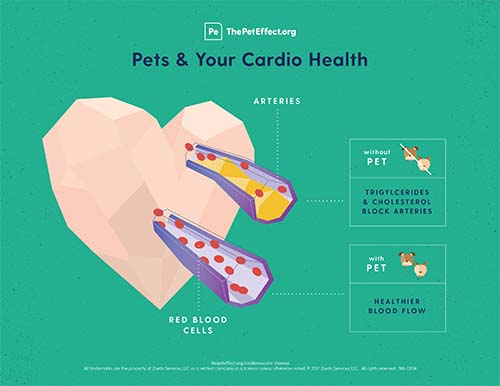Washington, D.C. (May 30, 2017) — The Human Animal Bond Research Institute (HABRI) announced today that IDEXX Laboratories, Inc. has become an official supporter of HABRI and its research on the human health benefits of companion animals.
“IDEXX is proud to support HABRI and its mission to advance human-animal bond research,” said Jonathan Ayers, Chairman and CEO of IDEXX Laboratories. “IDEXX is committed to enhancing the health and well-being of pets and people alike by bringing to market the most advanced diagnostics and software in veterinary medicine. When we provide high quality care for pets, human health also benefits.”
“IDEXX is an innovative leader in pet health,” said Steven Feldman, Executive Director of HABRI. “By supporting HABRI, IDEXX is demonstrating its dedication to the human-animal bond and to keeping pets and people healthy together.”
Scientific evidence increasingly shows that pets improve heart health; alleviate depression; increase well-being; support child health and development; and contribute to healthy aging. In addition, companion animals can assist in the treatment of a broad range of conditions from post-traumatic stress to Alzheimer’s disease to autism spectrum disorder.
The benefits of the human-animal bond impact more than just human health. Findings from a recent HABRI survey of 2,000 pet owners demonstrate that knowledge of the scientific research on the human-animal bond motivates pet owners to take better care of their pets. From providing pets with higher quality nutrition to more frequent visits to the veterinarian, spreading awareness of the health benefits of pet ownership improves pet health and welfare.
About IDEXX Laboratories
IDEXX Laboratories, Inc. is a member of the S&P 500® Index and is a leader in pet healthcare innovation, serving practicing veterinarians around the world with a broad range of diagnostic and information technology-based products and services. IDEXX products enhance the ability of veterinarians to provide advanced medical care, improve staff efficiency, and build more economically successful practices. IDEXX is also a worldwide leader in providing livestock and poultry diagnostic tests and tests for the quality and safety of water and milk. Headquartered in Maine, IDEXX employs more than 7,000 people and offers products to customers in over 175 countries. For more information about IDEXX, visit: www.idexx.com
About HABRI
The Human Animal Bond Research Institute (HABRI) is a not-for-profit organization that maintains the world’s largest online library of human-animal bond research and information; funds innovative research projects to scientifically document the health benefits of companion animals; and informs the public about human-animal bond research and the beneficial role of companion animals in society. For more information about the HABRI Foundation, please visit habri.org.
Contact
Jamie Baxter
jamie@theimpetusagency.com
775.322.4022
###





